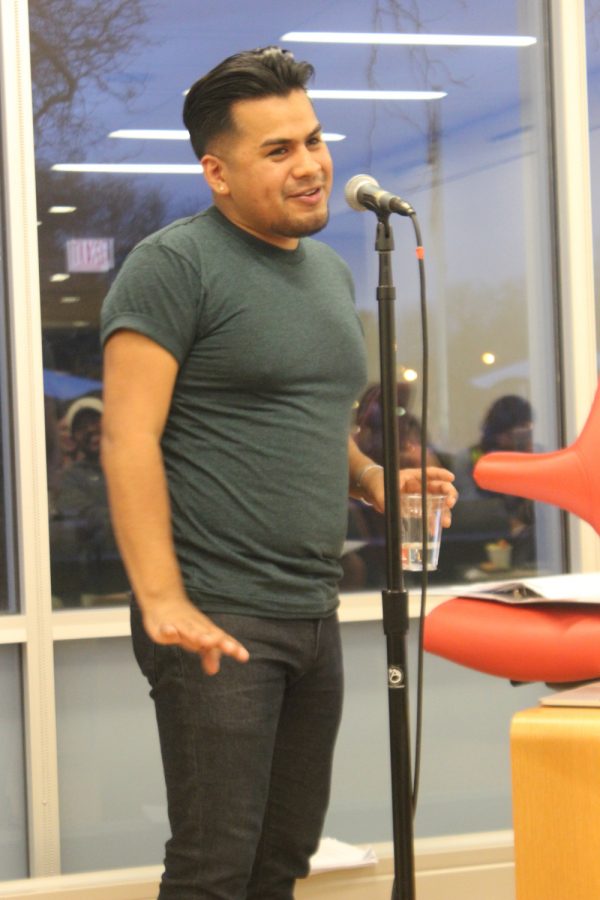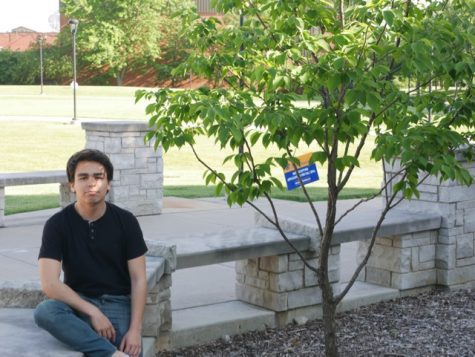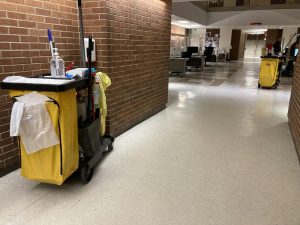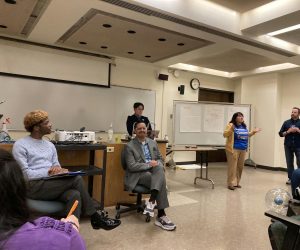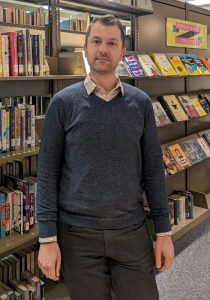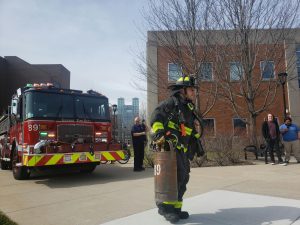Tales from an undocumented youth: Yosimar Reyes
Reyes is constructing a one man show with Guerrilla Rep Theatre in the near future. Reyes maintains the website yosimarreyes.org, which showcases his written work and blog.
April 12, 2017
The word ‘undocumented’ does not indicate identity or lifestyle, but is instead a social condition that separates one’s home life from a native-born citizen.
On Apr. 7, Yosimar Reyes, a nationally acclaimed poet born in Guerrero, Mexico and raised in east San Jose, Calif, was invited by Gamma Phi Omega member Yadira Alonzo and Undocumented Student Services Director Luvia Moreno to recite poetry and speak to an audience in the Angelina Pedroso Center.
Reyes also educated, performed and publicly spoke to audiences about his childhood and life lessons growing up in Latino communities. Reyes explored themes of migration and sexuality through his work, and shared stories that revolved around masculinity, social class, family, and respect.
Reyes addressed his undocumented status to the audience as his background, in a humorous fashion.
“So that’s really cute these days, everybody’s like ‘Oh my god, can I interview you?’ Sometimes I like it, but sometimes I get annoyed because they ask the same questions,” Reyes said. “The three basic questions they always ask when you tell someone you’re undocumented are ‘Tell me your migration story’ and the other is ‘have you talked to a lawyer?’ and the other, if they’re nice, is ‘Oh my god, you should get in the line.’”
Reyes said that he has a desire to ask different, more relevant questions that reflect the human side of undocumented immigrants. In addition, Reyes brought up moments of hard work and acceptance of immigrant workers that defy the perception that immigrants steal work from native-born Americans.
In his neighborhood of Boyle Heights in Soto, California, Reyes knew a popular juicing migrant lady selling alongside an apron salesperson and a bike vendor.
“So it’s like a perfect combination for hipsters because they like juice, aprons and bikes,” Reyes said. “You know, for those people that say undocumented people are stealing their jobs, I’m going to develop a non-profit (organization) and pay these señoras to come give workshops on how to be entrepreneurs and how to basically sell anything and get money for it.”
Reyes also highlighted his own aspects in a light-hearted, self-deprecating manner, such as his first fighting experience, his softer emotions and even his own first and last name.
“What’s also bad is that my actual name is Yosimar. Why couldn’t they name me something more boyish, like Juan or Pedro?” Reyes recited. “Everybody thinks they named me after la novella Marimar, so they all run around and shout out from the novella, ‘Yosimar!’”
In spite of poking fun at his culture and his neighborhood’s family and friends, Reyes reflected on every person’s positive and/or negative impact on his life, especially those that challenged his outlook and integrity. One experience that sticks out is the first time he was bullied for being gay and heard a certain Spanish term for homosexuals.
“Joto. It’s a simple four letter word, two syllables. Jo-to. I don’t really know what it means, but I know it’s bad,” Reyes said. “It feels bad when people call me that. I hate that everybody always tells me that I need to be more of a boy, but what does that mean? I am a boy.”
From that moment onward, Reyes faced judgment and disrespect from some of his loved ones, while coping with trauma from acquaintances, especially one from a family member he believed he could trust.
Reyes’s works emphasized the desire of freedom, the separation of social condition and identity, and the importance of sincerity and empowerment, to inform undocumented students and other listeners that lack of documentation does not make a person less than what they already are.


